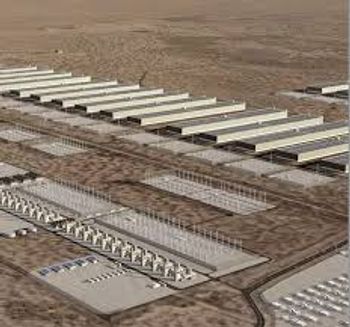
US LNG exports experience fallout from Covid-19 and oil price collapse
A revised forecast has come out on the natural gas market based primarily due to the Covid-19 pandemic and the brief crude oil price war initiated by Saudi Arabia due to the failure of extending OPEC+ production curtailments. These led to an unprecedented collapse in crude oil prices as well as oil rig numbers declining at the most rapid pace ever. As a consequence, gas production has declined as well. Analyst firm RBAC, therefore, predicts that the gas prices will trend higher, breaching the $3.00/MMBtu in January 2021. This will be driven by domestic production declines, especially in the oil centric basins, and to a lesser extent demand rebounding, albeit at a modest pace.
RBAC’s forecast of U.S. LNG exports made in Q4 2019 compared to the latest forecast in blue. Source: RBAC’s GPCM Natural Gas Market Forecasting System outlook.[/caption]
An anticipated dramatic supply curtailment will see U.S. natural gas production falling from nearly 97 Bcf/d in February 2020 to 88 Bcf/d during the June 2020 to August 2020 period. It could take some time for production to rebound.
This is impacting U.S. LNG exports. With global gas demand dropping dramatically, U.S. LNG exports over the next several years are expected to be significantly lower than previously forecast. The latest integration of RBAC’s modeling systems suggests approximately 1 Bcf/d lower exports though the balance of 2020, while the divergence grows to over 3.5 Bcf/d during the summer of 2021 and approaches nearly 5 Bcf/d by December 2021. This dramatic drop is due to much higher prices coupled with lingering global gas demand weakness which makes U.S. natural gas less competitive globally.
This does not mean that U.S. natural gas will remain uncompetitive longer term. In fact, prices remaining in the $3.00 to $3.50/MMBtu range throughout 2021 and 2022 provoke the supply response necessary to moderate prices, said RBAC. Simultaneously, global demand returns to more normal levels leading to a rebound in U.S. LNG exports thereafter.
U.S. domestic gas demand has been impacted by Covid-19, though not as much as crude and refined products have been due to their greater use as transportation fuels (diesel, jet fuel, and gasoline). There is, however, some spill-over effect from transportation fuels demand destruction to natural gas industrial demand. Specifically, refineries, petrochemical plants, auto manufacturing and other industrial demand related industries have significantly reduced operations – some have ceased operating all together. This shuttered demand is likely to remain lower than normal until 2022 – 2023.
Newsletter
Power your knowledge with the latest in turbine technology, engineering advances, and energy solutions—subscribe to Turbomachinery International today.




